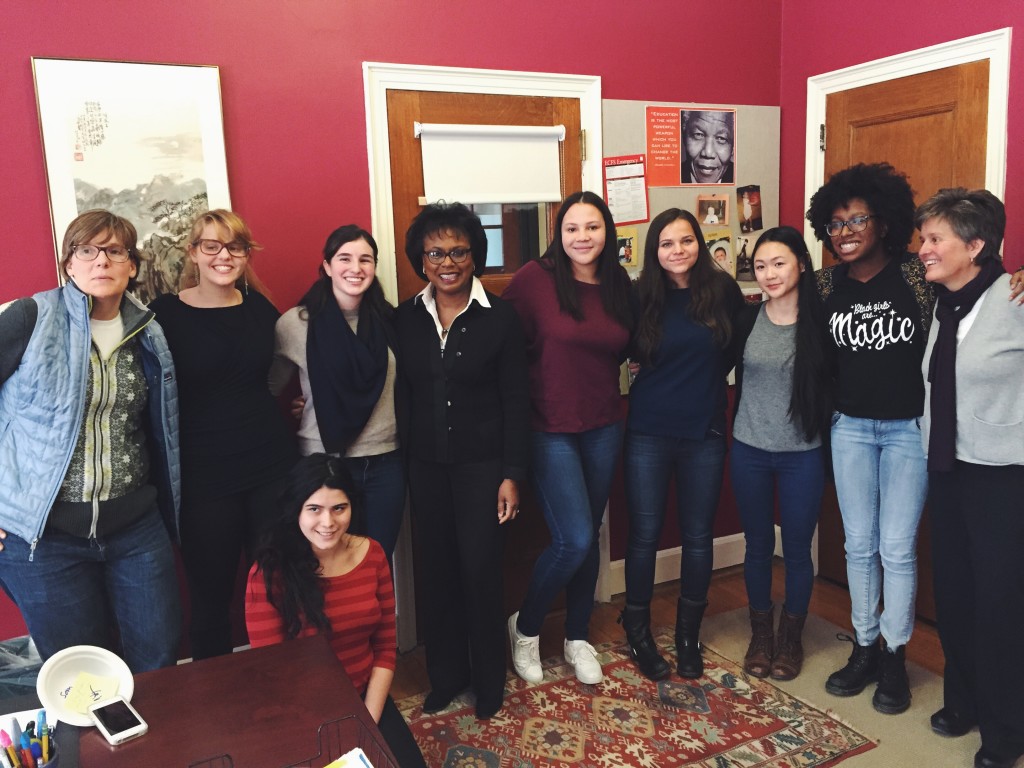
On Wednesday February 18, Anita Hill was welcomed to Fieldston’s Assembly After Dark program. “I remember watching her on TV,” one parent said, “and it was amazing to get to see her speak in person.” Hill’s role in the 1991 hearing of Supreme Court nominee Clarence Thomas not only gave a voice to other victims, but also encouraged women to run for positions of power and highlighted the concept of intersecting social identifiers. “There were deeper social issues being openly discussed for the first time,” said Hill, “it’s not like this was the first act of sexual harassment, it’s that victims previously had no space – public or private – to talk about these experiences.” Hill spoke about her case in terms of a larger movement towards gender equality, referring to it as “very political” — that is to say, Hill believed there would have been no difference in the outcome if she were white. “They were not ready to deal with the issue of harassment,” she asserted.
Hill was not met with any shortage of questions after her talk. One parent asked what people could do now regarding issues of sexual harassment and assault. Hill’s answer was clear: “We must listen to the victims,” she said, “their truth carries mounds of power.” Hill further argued that we needed “rigorous and continued enforcement of the law,” referring back to the case of Alexander vs. Yale. “While you have young women’s activism today, we have to have the government behind them… [we must] keep alive the idea of a fair and just society, one where we all feel valued.”
Hill received a standing ovation following her talk and Q&A session at the Assembly After Dark. “I think [Anita Hill] did exactly what our school is supposed to train us to do,” says Nick Garber (VI), “[which is to] take an individual stand against a perceived injustice despite some pretty massive resistance.” Dejon Bunn-Constant (VI) added, “It was great to hear someone so educated give a perspective on experiencing sexual harassment as a woman of color. Both are such oppressed groups that people who identify with those demographics tend to be silenced a lot.”
The next day, Hill spoke at Fieldston’s Upper School assembly, where she declared, “Change doesn’t happen because many people want it to. It is the select few that can affect change.” Ironically, following Hill’s statement was the sharing of the FSG gender mandate poll results, where it was announced that 38 percent of girls were opposed, in contrast to 73 percent of boys. As a result, the FSG gender mandate was the main subject of conversation when Hill came to speak with Fieldston’s Women Leadership group. We “need diverse representation,” she declared, “which is not happening under the current system. We assume the current structure is the best structure for achieving the goals of the system, but is there something else we can be doing, given what we know about hidden/unconscious bias?”
When prompted with the argument that “guys have to find a girl to run with, so the girl is being used for her gender,” Hill asked, “Well, what if girls have to find a guy to run with? Isn’t that how it is now?”






